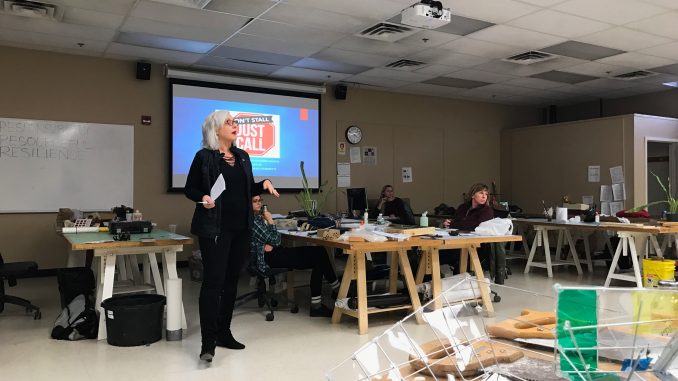
A statewide medical amnesty policy could be altered to include drug overdoses and underage alcohol poisoning, according to a bill introduced in the state House of Representatives.
Pennsylvania state Rep. Carolyn Comitta introduced a pair of bills on Oct. 17, co-sponsored by state Rep. Mary Jo Daley, that would implement a statewide medical amnesty policy for drug overdoses and underage alcohol overdoses.
The proposed bills would guarantee increased protection for those who self-report and practice “Good Samaritan” intervention for alcohol and opioid-related overdoses. Victims would also be guaranteed increased protection under the law and would not be charged if they seek help.
House Bill 2719 provides immunity to victims of drug overdoses and 2720 does the same for underage victims of alcohol overdoses.
The person who calls for help for a victim is already granted immunity under the “Good Samaritan” law.
“What we didn’t have, and that these bills would provide, is immunity for the victim,” Comitta said.
Mary Ciammetti’s son, Christian, died from alcohol poisoning in 2015 while a junior at Temple University. She created an alcohol education program, Don’t Stall, Just Call, at Temple in 2016.
Ciammetti testified to members of the state House of Representatives on Main Campus in April, lobbying for a statewide alcohol education and medical amnesty program.
Ciammetti told The Temple News that while many universities, including Temple, have medical amnesty policies in place that protect both the person who calls for help and the victim, off-campus protections are handled differently.
“Throughout the state…they are not consistent,” Ciammetti said. “You may be attending college in a town where you have medical amnesty on campus, but if an incident occurs off-campus, you are treated differently. This is a big problem.”
Ciammetti raised the issue to Daley, who decided to co-sponsor the proposed bills in the state House.
“It’s to really let them know and educate them on how they can do something to help without getting in trouble, themselves,” Daley said.
Ronan Gleeson, a sophomore finance and computer science major who received medical amnesty, said a statewide policy would encourage more students to call for help.
During the 2017-18 academic year, 119 students used medical amnesty, an increase from the 2016-17 academic year when 88 students utilized the policy, according to Megan Patrick, the assistant dean of students for Student Conduct and Community Standards.
“If students aren’t sure what’s going to happen if they do call, that might be a disincentive for them to actually call,” Gleeson said. “Everything with medical amnesty should be set up so that students call without any apprehension.”
Ciammetti encourages students and parents to bring up these issues with their state representatives before the two bills are reintroduced in January once state representatives are elected in the 2018 midterms.
She said parents must take the initiative to ask colleges about their current medical amnesty policies and “put the ball in their court.”
“You need to dig deeper and see where you are,” Ciammetti said. “Because the rules in Pittsburgh are different from the rules in Philadelphia.”


Be the first to comment